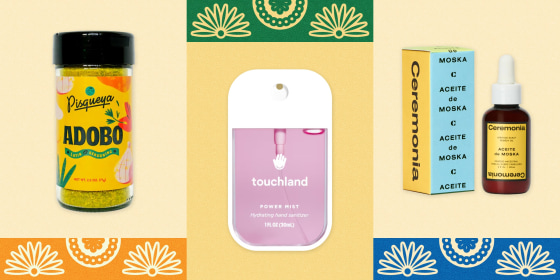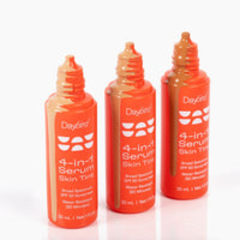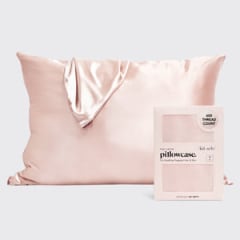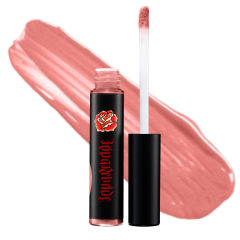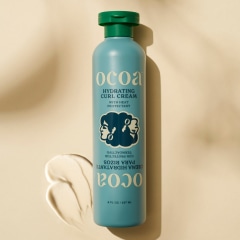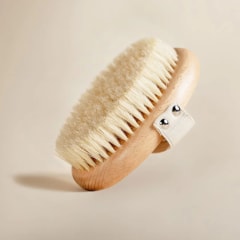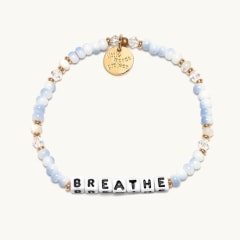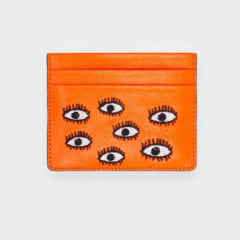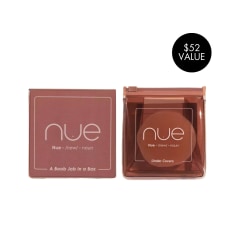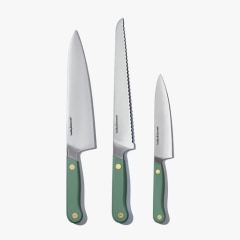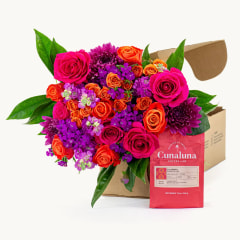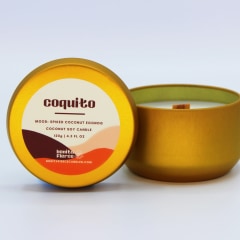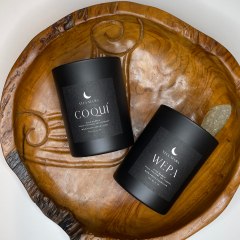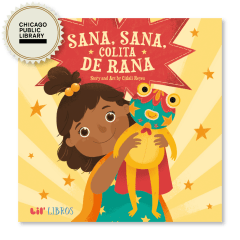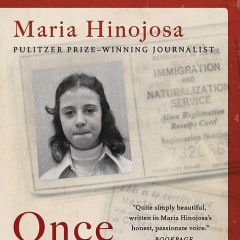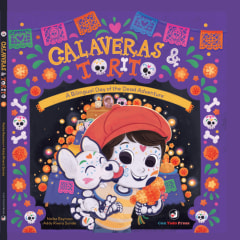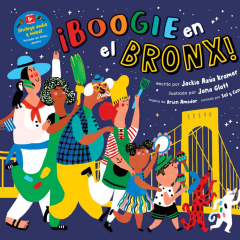September through November is the busiest time of year for Melissa Gallardo’s candle brand Bonita Fierce. Hispanic Heritage Month is from Sept. 15 to Oct. 15, and Dia de los Muertos — Day of the Dead — is traditionally celebrated on Nov. 1 and 2, so interest in Latino culture skyrockets during these months, as does the traffic to Gallardo’s site. With her candles encompassing nostalgic Latino scents like cafecito con leche, elote and lavender fabulosa, Gallardo’s mission is to celebrate Latino culture and put that representation on shelves.
Latino-owned businesses are the fastest-growing segment of small businesses in the U.S., with over 5 million businesses owned by Latino/a entrepreneurs in the country, according to the Stanford Latino Entrepreneurship Initiative (SLEI). Though Latino business owners have solidified their role as strong contributors to American economic activity, they face a string of unique challenges compared to white, non-Latino business owners.
SKIP AHEAD Beauty and skin care brands | Clothing and accessories brands | Food and beverage brands | Home and kitchen brands | Bookstores and educational brands | Why trust NBC Select?
“On one hand, the awareness around multiculturalism in all aspects of life — fashion, culture and food — is higher than ever,” says Maritza Abreu, founder and CEO of food brand Pisqueya. On the other hand, the enthusiasm for Latino culture hasn’t quite translated to more representation in other key markets, she says. That, paired with the lack of access to capital and difficulties staying true to core cultural values while maintaining a strong presence against larger competitors, makes being a Latino business owner both gratifying and challenging, says Abreu.
Receiving support from shoppers is what allows Latino-owned businesses to continue thriving, and despite Hispanic Heritage Month amplifying these entrepreneurs’ voices, it shouldn’t just be one month out of the year, says Gallardo. “The contributions of the Hispanic and Latino community need to be celebrated year-round. I’m a business that celebrates Latinidad year-round,” she says.
I connected with over 100 Latino-owned businesses, many of which, like Bonita Fierce and Pisqueya, are inspired by their heritage and cultivate a sense of cultural appreciation. The list of Latino-owned businesses below gives you a taste of the brands represented in sectors like skin care, home and kitchen, food and more. Note that to qualify as a Latino-owned business, I verified that each company featured below is 51% owned by persons of Latino origin, akin to the way the Census defines Black-owned, AAPI-owned and women-owned businesses.
Latino-owned beauty and skin care brands
Ceremonia
Inspired by the beauty rituals she grew up with, Babba Rivera founded Ceremonia to create more Latinx representation in hair care. “Despite us accounting for almost 20% of the population and being the highest spenders in many categories, hair being one of them, I kept asking myself, ‘Where are the brands that authentically speak to the new generation of Latinx folks, and more importantly, where are the category-leading brands founded by Latinx entrepreneurs?’” says Rivera.
The Latinx community’s influence is present in all aspects of Ceremonia’s business model, including Ceremonia’s natural ingredients sourced from Latin countries, photographers, models and even the materials it uses in its accessories, says Rivera. The brand is thriving as a result: Ceremonia opened its first brick-and-mortar store in New York City last year, and became the first Latina-founded hair brand sold at Sephora.
Daybird
Daybird founder and CEO Whitney McElwain was frustrated by beauty brands selling the idea that in order to look and feel your best, you need to cover up your skin with layers and layers of products. Daybird started as a way to dismantle that standard with people of color at the forefront. “We look to create products with women of color in mind and create space for these same women on the shelf and in the media,” says McElwain. Its tinted skin care is what the brand calls a 4-in-1 multi-tasker: a serum, moisturizer and sunscreen all in one.
While she’s proud to be a Latina entrepreneur, McElwain says it’s not easy to get small businesses off the ground. “Latinas less than half a percent of venture funding and this is deeply apparent in every investor conversation we have,” she says. This makes Hispanic Heritage Month even more meaningful to her. “For this one time a year, I truly feel seen.”
De La Heart
Gigi Vogel founded De La Heart after discovering the power of lymphatic drainage, which is a gentle massage that helps drain lymph nodes and targets the lymphatic system just underneath the skin. In 2019, Vogel launched The Body Tool and four body oils to help bring that ritual into people’s homes. Now, the brand has dozens of products across the beauty and wellness space, including dry brushes, body balms and butters, face and body sculpting tools, apparel and more.
Kitsch
Colombian-American Cassandra Morales Thurswell built hair and wellness brand Kitsch around an item most people use daily and often don’t think twice about: a simple handmade elastic hair tie. “That little accessory’s success showed me that hair care was so much more than shampoo and conditioner and inspired me to keep going,” says Thurswell. Kitsch has skin care, body care, sleep and shower essentials that are free of harsh chemicals, cruelty free and come in 100% recyclable packaging, according to the brand.
Ocoa Beauty
After years of using heat and chemicals on their curls and being told they had “pelo malo” (“bad hair”), Dominican Republic-born sisters Cory and Nicol Varona finally embraced their natural hair in 2017. Their curly hair journey involved learning how to treat and care for their curls, but they found most products out there were greasy, heavy and didn’t quite work — so, the sisters launched Ocoa (which is from the indigenous Taino language meaning “a place between mountains) in 2021 as a solution. The brand currently offers a four-step system for healthy curls: shampoo, conditioner, a curl-defining styling gel and a hydrating curl cream.
Reina Rebelde
While growing up in Mexico, Regina Merson’s makeup obsession started by watching her mom get ready and watching the telenovela “Rosa Salvaje.” Merson created Reina Rebelde as a way to reflect her identity as a Mexican woman living in the U.S. with bold, diverse and unpredictable shades and themes. You’ll find a range of makeup products inspired by Merson’s personality and fierceness, including contour kits, eyeshadow pallets, bold lipsticks and liquid eyeliners.
Latino-owned clothing and accessories brands
Eberjey
Ali Mejia and Mariela Rovito cofounded Eberjey in 1996, a time during which the intimates market was very one-dimensional with designs made predominantly for the male gaze, according to Rovito. “There was a void for lingerie and sleepwear that are both sensual and comfortable,” she says. In addition to underwear and lingerie, the brand offers women’s and men’s pajamas, swimwear, loungewear and more.
Little Words Project
Adriana Carrig created Little Words Project as a way to create wearable affirmations and reminders of one’s self-worth and self-love in a classic friendship bracelet style. On the brand’s site, you’ll find pre-made bracelets with positive phrases like “Keep Going” and “You Got This,” and you can make your own bracelet with a custom saying.
Min & Mon
When Andrés Felipe Quintero and his wife Carolina Llano moved to the U.S. from Colombia, Llano wasn’t allowed to work due to her visa. So, she developed a fresh concept for unique whimsical and playful handbag designs, which became Min & Mon in 2014. “From that idea stemmed a dear desire to preserve the multigenerational leather tradition in Colombia that was disappearing for cheaper wages due to fast fashion,” says Quintero. Min & Mon offers a range of wallets, bags and small accessories.
Nue
After years of working in fashion, Stephanie Montes knew the secret to going braless under backless styles and plunging necklines was duct tape — but not only did it not look or feel great underneath clothes, it was a pain to remove. She created Nue’s breast tape and nipple covers to solve that problem for women of all shapes, sizes and skin tones. All of the brand’s tape — which comes in a 16.5-foot roll — is stretchy, hypoallergenic and available in four shades.
Saalt
Cherie Hoeger created period care brand Saalt with a mission to provide reusable period care products to those experiencing period poverty, fueled by her family in Venezuela not having easy access to period products while the country grappled with political instability. Six years later, Saalt has donated over 104,000 products that have reached more than 65,000 women and girls in need in 50 countries as part of its 2% give-back mission, which commits 2% of Saalt’s revenue to donating period care to regions with the most need, according to the brand. The brand has a variety of reusable period products, including menstrual cups and discs and leak-proof underwear.
Springrose
Shopping for an adaptive bra that her grandmother, who had chronic pain and arthritis, could easily put on by herself made Nicole Cuervo realize how few functional, stylish and size-inclusive options there were on the market. She began talking to women with a range of injuries, illnesses and disabilities, all of whom said they experienced the same issue her grandmother did. This inspired Cuervo to start Springrose, named after Grandma Rosa, and create the brand’s front-closure bras.
Cuervo collaborated with rehabilitation centers to develop and test iterations of the bra before landing on its final design. “It means a lot to me that I get to work on a business that helps reduce pain and restore dignity and independence, while also creating jobs and opportunity for my community,” says Cuervo, noting that 33% of those who work with Springrose are Latinx.
Latino-owned food and beverage brands
Brazi Bites
Pão de queijo, a bun-like cheese bread, is a staple in Brazil for get-togethers, and almost every freezer is stocked with it. When Brazi Bites co-founder and CEO Juneau Rocha moved to the U.S., it was one of the traditions she missed most about home. However, pão de queijo is traditionally made with “minas” cheese, which is only available in Brazil, so Rocha began experimenting — she made the perfect batch and ultimately founded the brand with her husband in 2010. After presenting Brazi Bites on Shark Tank in 2015, the brand expanded to frozen waffles, empanadas and pizza snacks. All of Brazi Bites’ products are gluten-free, too.
Pisqueya
Maritza Abreu’s parents immigrated from the Dominican Republic and opened the doors to their Brooklyn restaurant, Puerto Viejo, in 1986. After a fire at the establishment, Abreu wanted to help her parents grow their business as they rebuilt it. She began bottling up family recipes and selling them as ready-to-eat sauces and seasonings, like Adobo, a blend of garlic, onion, salt, oregano, turmeric and black pepper. Pisqueya became a way for Abreu to share flavors that remind her of home with those beyond patrons of her family’s restaurant and help fill the gap in Latin Caribbean representation within the global food market. In addition to seasonings, the brand sells hot sauces and apparel.
Salut
Gathering with loved ones to share food and drinks is a special part of Hannah Matthew Martinez and Hannah Brock Silva’s respective Puerto Rican and Colombian cultures. But as they got older, they began thinking about all the sugar, additives and preservatives inside the cocktails they’d enjoy at these events. “We weren’t even able to pronounce the ingredients in what we were drinking,” says Martinez. They wanted to find easy-to-make, healthy alternatives to typical cocktails, and infusions were exactly what they were looking for.
Infusions are bottles filled with spices, dried fruits and botanicals that you fill with liquid. As it sits, the liquid extracts flavors from the ingredients until you strain it into a glass to sip just like a cocktail. Martinez and Silva spent months perfecting the taste profile of Salut’s infusions before launching them in 2019. Last year, the brand expanded its offerings by launching Sipperettes, shots of flavored vinegars designed to drink before eating sweets to help avoid blood sugar spikes. All of Salut’s products are packaged by individuals with disabilities, helping provide them with jobs, according to the brand.
Siete Foods
Veronica Garza, co-founder and president of Siete Foods, founded the brand with her family after being diagnosed with multiple autoimmune conditions and overcoming major health issues. The family of seven (which is where the name “Siete” comes from) started learning about how certain foods affect health and a low-inflammation, elimination diet, which involves removing certain foods from your diet to figure out which ones can cause adverse reactions. A Mexican-American family from South Texas, the Garza family created Siete as a way to share authentic and healthy Mexican cuisines. The brand offers a range of grain-free Mexican foods, including flour tortillas, cookies and tortilla chips, as well as cooking sauces, seasonings, beans and more.
Somos
Somos was created by a group of three Mexican friends who felt there were not enough options for cooking authentic Mexican food at home in the U.S. They created ready-to-eat foods that capture some Mexican culinary traditions and authentic home cooking. The brand has oven- and microwave-ready rice and beans, entrees and burrito bowls, as well as cooking sauces, chili crisp and chips and salsa.
Tia Lupita Foods
One of the things Hector Saldivar missed most when he moved from Mexico to the U.S. in 2005 was his mother’s hot sauce. She began shipping him care packages filled with bottles of sauce, which Saldivar shared with friends and coworkers to teach them about his heritage. But Mexican hot sauce is not the same as what you find at American grocery stores, says Saldivar — it’s mainly made with peppers, while the primary ingredient in U.S. hot sauce is water or vinegar. “People kept asking me for more and more hot sauce, and I knew I had to find a way to bottle and sell this,” says Saldivar.
Beyond the taste differentiating Tia Lupita’s hot sauce from its competitors, Saldivar says he made sure the product’s label, which features an image of his mother, helped it stand out. “Most hot sauces in the U.S. are very polarizing, very macho driven, and many communicate pain with skulls and bones and flames,” he says. “We use a label that communicates approachability and says our hot sauce is for anyone who is looking for some flavorful heat.”
Saldivar says there’s currently so much excitement about ethnic food in the United States, specifically Mexican food, which has helped the brand “stick around” and continue growing. Beyond hot sauce, Tia Lupita now offers a line of tortillas, chips and salsa macha, a Mexican chili crunch.
Bloomsybox
Juan Palacio grew up surrounded by flowers in Colombia, the second largest exporter of flowers in the world after the Netherlands. After moving to the U.S. over 20 years ago, Palacio knew he wanted to share his love of flowers with others. In 2015, he founded the flower subscription brand Bloomsybox to not only help people discover different types of blooms year-round, but also to uplift his Latino roots by sourcing flowers that are mostly grown in Latin America.
“I have noticed that customers are now placing a greater emphasis on brands that don’t shy away from their heritage,” says Palacio. “It’s not about impressing anyone, but rather embracing and celebrating one’s roots. I believe it’s crucial to embrace our heritage and share it with others.”
You can subscribe to get Bloomsybox flowers monthly or weekly, plus choose your delivery date. In addition to everyday blooms, bouquets and plants, Bloomsybox has a Hispanic Heritage Bouquet, which is made up of stems grown and harvested by farms in Argentina, Colombia, Ecuador, Nicaragua and Venezuela, and comes with a bag of Colombian coffee.
Bonita Fierce
After Melissa Gallardo, founder and CEO of Bonita Fierce, realized the scents she grew up with weren’t represented in the home fragrance industry, she was motivated to create her own Latino-inspired candle brand in 2020.
“Navigating language, culture and heritage has always been challenging but most of all, the feeling of what home means,” says Gallardo. “I set out to create a collection of Latina-inspired candles to share la cultura with the rest of the world.” She not only takes inspiration from her own experiences but also leans on community requests for scents that really encompass what it means to be Latino.
However, starting a candle brand during the pandemic came with a unique set of challenges: On top of a glass shortage and increasing costs of wax and fragrance oil, it was tough to sell new scent-based products online without the in-person shopping experience. “I really had to hone in on my story and create a story behind every fragrance,” she says. Now, Bonita Fierce is the first Latina-owned candle brand sold at Nordstrom, and this month, the brand launched nationwide at Barnes & Noble.
Hedley & Bennett
For over a decade, Hedley & Bennett has been known for its aprons. But Ellen Bennett, the brand’s founder and a native Angeleno raised by a single Mexican-born mother, has set her sights on more than just kitchen apparel as she and her team continue to grow the brand. “We want to bring the same level of quality to cutting boards, knives and other tools that we bring to aprons,” she says. “If you’re outfitting your kitchen, we want to be the brand you turn to now and in 50 years. How do we do that? We do it with great products.” Hedley & Bennett collaborates with a community of chefs to test the brand’s products during the research and design phase, and tweaks items based on the feedback it receives. “Nothing is ever done in a silo,” says Bennett.
Latinx with Plants
Latinx with Plants was created in 2019 by Andi Xoch and inspired by @blackwithplants, a community founded by D’Real Graham that celebrates and inspires people of color in the plant world. In addition to selling plants at its Los Angeles storefront, Latinx with Plants has plants, prints and merch available for purchase on its website. The brand also offers in-person pop-up events and plant workshops throughout the year.
Loisa
Loisa emerged after co-founders Kenny Luna and Scott Hattis created organic versions of the most famous Latin seasoning pair, sazón and adobo, so they can pass on their families’ Dominican heritage foods to their children without worrying about artificial ingredients and unnecessary fillers. In 2021, Dominican community chef and food activist Yadira Garcia of Happy Healthy Latina joined the brand as an owner. The name “Loisa” is an homage to “Loisaida,” the Spanglish name for Luna and Hattis’ hometown on the Lower East Side barrio of downtown New York City. In addition to offering pantry staples like seasonings and sofrito sauce, Loisa also has kitchenware tools and essentials, including mortars and pestles and a tostonera.
Vela Negra
Aisha Cort initially started Vela Negra as a stress-reducing outlet, and it soon evolved into unique candles and scents that capture Hamilton’s Afro-Cuban and Guyanese heritage. Cort, who is also an assistant professor of Latin American Studies and Bucknell University, says she pours candles with black wax because black absorbs and dispels negative energies, which helps inspire new beginnings and clarity. Each candle is individually hand-poured using 100% vegan coconut soy wax and ethically-sourced wooden wicks, fragrance and dyes.
Latino-owned bookstores and educational brands
Cafe Con Libros
Cafe con Libros is a Brooklyn-based community bookstore and coffee shop that helps create a space where everyone, specifically womxn-identified folx, feel celebrated and affirmed. Owner Kalima DeSuze opened Cafe con Libros in 2017 as an intersectional feminist bookstore and an homage to her Afro-Panamanian roots. You can shop and pre-order books on the store’s website, along with merch and its monthly book subscription.
Chau Luna
Ximena Diego is an Argentine mother and journalist raising two bilingual children in New York City. To help bring up bilingual readers, she founded Brooklyn-based Chau Luna (which means “bye-bye, moon”) in 2016 to create a collection of Spanish-language books that children of all ages would enjoy. You can shop picture books, chapter books, audiobooks and more on the store’s website.
Con Todo Press
Naibe Reynoso, founder of Con Todo Press, is a Mexican-American multi-Emmy award-winning journalist based in Los Angeles, California. She created the publishing company in 2018 to create children’s books that celebrate Latino culture and help fill a gap in the publishing industry where women, Latinos and people of color are underrepresented. You can find the company’s Little Biographies for Bright Minds series, which are bilingual books that highlight Latina and Latino leaders, apparel, merch and more on its website.
Duende District
Duende District creates tiny pop-up bookstores all over the country for and by people of color. Each Duende District bookstore has a curated selection of new and used adult and children’s books by authors of color in English and Spanish. The bookstores partner with cafes and stores to open a literary space focused for communities of color. You can find Duende District locations in Albuquerque, New Mexico; Washington, DC; and Brooklyn, New York. You can shop the bookstore’s collection on Bookshop.com.
Lil’ Libros
Los Angeles-based bookstore Lil’ Libros was founded by two friends, Patty Rodriguez and Ariana Stein, who wanted to create a collection of children’s books that celebrate cultural diversity in English and Spanish. Rodriguez and Stein’s books aim to inspire young minds, ignite an interest in reading and help young people embrace bilingual literature. You can shop books, games and teacher resources on the store’s website.
The Lit Bar
The Lit Bar was founded by Bronx native and resident Noëlle Santos in 2019 after the last bookstore in the Bronx closed, leaving the community without a literary hub. It is currently the only brick and mortar bookstore serving the Bronx and is an accessible way for people to come together through social gatherings at the in-house wine bar and curated, local community programming. You can shop the bookstore’s curated lists on Bookshop.com.
Why trust NBC Select?
Mili Godio and Zoe Malin spoke to over a dozen leaders of the Latino business community to better understand their challenges and successes, as well as what they hope for for the future. Godio also connected with over 100 Latino-owned businesses to compile this story. Godio and Malin have previously worked on several entrepreneur-focused pieces, including Black-owned, women-owned and LGBTQ-owned.
Catch up on NBC Select’s in-depth coverage of tech and tools, wellness and more, and follow us on Facebook, Instagram, Twitter and TikTok to stay up to date.
